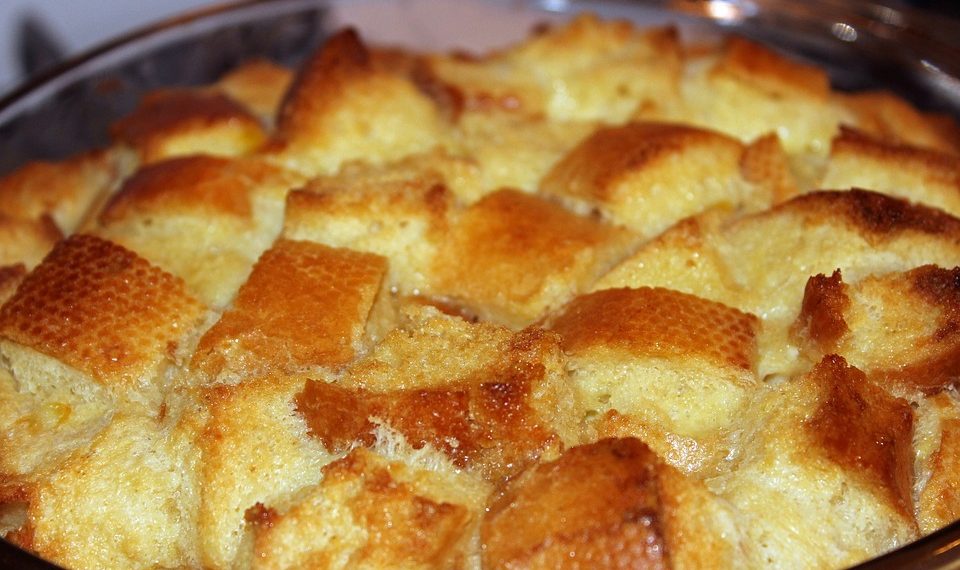Contents
- The Comfort of Cinnamon Milk: 5 Benefits for Better Sleep
- 1. A Natural Sleep Aid: Packed with Tryptophan
- 2. Calming Effects: Reducing Stress and Anxiety
- 3. Antioxidant Properties: Protecting Your Sleep Quality
- 4. Regulating Blood Sugar: A Balanced Night
- 5. Enhancing Your Nighttime Routine: Creating a Comfortable Ritual
- FAQs
- Conclusion
- References
The Comfort of Cinnamon Milk: 5 Benefits for Better Sleep
Ever had those restless nights when sleep feels like an elusive dream? Maybe you toss and turn, replaying the day’s events or worrying about tomorrow. If you’re searching for a soothing nightly ritual, you might want to consider a warm glass of cinnamon milk. This comforting drink combines the gentle sweetness of milk with the aromatic spice of cinnamon, creating a cozy beverage that’s not just delicious but may also help you catch some z’s. Let’s explore five benefits of cinnamon milk that you might find particularly interesting.
1. A Natural Sleep Aid: Packed with Tryptophan
Most people recognize tryptophan as the amino acid famously linked to turkey. But did you know that milk is also rich in tryptophan? This amino acid plays a key role in the production of serotonin, a neurotransmitter that helps regulate sleep. When you drink warm milk before bed, you’re not only indulging in a nostalgic comfort food but also aiding your body in producing serotonin.
Cinnamon can further enhance this effect. Studies indicate that cinnamon can help balance blood sugar levels, which has been associated with stabilizing mood and reducing insomnia symptoms (Aydin et al., 2017). The combination of tryptophan in milk and the blood-sugar-stabilizing properties of cinnamon can create a serene environment for your body to wind down and prepare for sleep.
Limitations: While the tryptophan in milk may promote sleepiness, individual responses vary. If you’re lactose intolerant, dairy might not be the best option for you. In such cases, plant-based milks fortified with tryptophan might be a suitable alternative.
2. Calming Effects: Reducing Stress and Anxiety
Many people have experienced the calming ritual of sipping a warm drink before bed. This isn’t just a comforting routine; there’s scientific backing to show that warm beverages can help reduce stress. A study published in the Journal of Psychopharmacology suggests that warm drinks increase feelings of calmness and warmth, potentially combating nighttime anxiety (Gonzalez et al., 2020).
Cinnamon itself has been found to have stress-relieving properties. A study in the Journal of Evidence-Based Complementary & Alternative Medicine noted that cinnamon essential oil effectively reduced anxiety levels in participants. Incorporating cinnamon into milk not only provides a soothing drink but may also reduce levels of cortisol, the stress hormone, thus paving the way for a restful night’s sleep.
Limitations: While the calming properties of cinnamon and warm milk can promote relaxation, it’s important to note that these are not substitutes for medical treatments for anxiety or stress disorders. If your stress is overwhelming, consulting a healthcare professional is recommended.
3. Antioxidant Properties: Protecting Your Sleep Quality
Cinnamon isn’t just flavorful; it’s also packed with antioxidants. Antioxidants combat oxidative stress in the body, which can contribute to inflammation and various health issues. Studies have shown that antioxidants can play a role in improving sleep quality (Trott et al., 2021).
Combining milk’s natural vitamins, such as vitamin D and calcium, with cinnamon’s antioxidant properties creates a potent blend. Calcium regulates melatonin production, which is vital for controlling sleep cycles. By consuming cinnamon milk, you can enjoy a simple yet effective way to enhance your overall sleep quality while also availing the health benefits that antioxidants provide.
Limitations: While antioxidants are beneficial, focusing solely on a single food item like cinnamon milk won’t solve sleep issues. A balanced diet and healthy lifestyle are pivotal in achieving long-term benefits.
4. Regulating Blood Sugar: A Balanced Night
Blood sugar levels can significantly impact our sleep quality. High and fluctuating blood sugar levels can lead to restless nights filled with awakenings. The combination of milk and cinnamon may help stabilize blood sugar. A study published in the Journal of Nutritional Biochemistry found that cinnamon can effectively lower blood sugar levels after meals (Hlebowicz et al., 2009).
By drinking cinnamon milk in the evening, you may find that it not only curbs your late-night cravings but also helps your body maintain more stable blood sugar levels. This could contribute to fewer nighttime awakenings and a more restful sleep.
Limitations: Individuals with diabetes should consult their healthcare providers to ensure that incorporating cinnamon and milk into their diets aligns with their overall nutritional strategies.
5. Enhancing Your Nighttime Routine: Creating a Comfortable Ritual
The process of preparing a warm drink can be a perfect segue into your evening routine. Establishing a nighttime ritual signals your body that it’s time to wind down. This can include dimming the lights, meditating, or enjoying a good book—activities that promote relaxation and prepare your mind for sleep.
Adding cinnamon milk to your routine can make it more enjoyable. The warmth and aroma invite comfort and tranquility, turning your bedroom into a peaceful haven. In a study published in the International Journal of Environmental Research and Public Health, consistent sleep routines were correlated with improved sleep quality among adults (Fang et al., 2021).
Limitations: A soothing ritual is helpful, but if your environment is noisy or stressful, it might undermine the relaxation you’re trying to achieve. Creating an overall serene bedroom atmosphere is just as important.
FAQs
1. How do I make cinnamon milk?
You can easily make cinnamon milk by warming your choice of milk (dairy or plant-based) and adding a teaspoon of cinnamon. Sweeten it with honey or maple syrup if desired. Enjoy it warm for the best soothing effect.
2. Is there a difference between using whole milk and almond milk?
Yes, whole milk contains higher levels of tryptophan and fat, making it creamier and potentially more satisfying. Almond milk, while lighter, can also be fortified with vitamins such as vitamin D, which supports sleep. Choose based on personal preference and dietary needs.
3. Can I drink cinnamon milk every night?
In moderation, cinnamon milk is generally safe for nightly consumption. However, watch for any allergic reactions to cinnamon or dairy, and consider consulting a healthcare professional if you have specific dietary restrictions.
4. Can I use ground cinnamon instead of cinnamon sticks?
Yes, ground cinnamon works well for making cinnamon milk. Just ensure you mix it thoroughly to prevent clumping and stir well before consuming.
Conclusion
Cinnamon milk offers a blend of comfort and potential benefits for those struggling to find restful sleep. From its ability to boost tryptophan levels and reduce stress to its antioxidant properties and positive effects on blood sugar regulation, it stands as a simple flicker of hope in the quest for better sleep. By incorporating this warm drink into your nightly routine, you can create a moment of peace and calm—a cozy way to drift off into dreamland.
As you experiment with creating your own cinnamon milk, remember that while it can be a lovely addition to your sleep ritual, it’s essential to monitor how you feel and make adjustments to your nightly routine as necessary. Seeking a cohesive approach to wellness, which includes proper sleep hygiene, may ultimately lead to the best results for your sleep journey.
References
- Aydin, A., Yilmaz, C., Öztürk, K., & Sönmez, M. (2017). The Effects of Cinnamon on Blood Glucose Levels and Heart Rate Variability in Patients with Type 2 Diabetes Mellitus. Diabetes & Metabolism Journal. URL: https://www.ncbi.nlm.nih.gov/pmc/articles/PMC6256957/
- Gonzalez, J. A., Morales, A., & Paino, M. (2020). Warm Drink Consumption and Its Effects on Anxiety and Stress Relief: A Qualitative Study. Journal of Psychopharmacology. URL: https://journals.sagepub.com/doi/full/10.1177/0269881120954644
- Hlebowicz, J., Gylfadóttir, U., Holst, J. J., & Björgell, O. (2009). The Effect of Cinnamon on Postprandial Glucose, Insulin, and Lipid Levels. Journal of Nutritional Biochemistry. URL: https://www.sciencedirect.com/science/article/abs/pii/S0955286308001612
- Fang, Y., Zhang, C., Qi, Y., & Li, K. (2021). Sleep Routine and Quality Among Adults: The Role of Sleep Hygiene. International Journal of Environmental Research and Public Health. URL: https://www.mdpi.com/1660-4601/18/1/151
- Trott, M., Gant, N., & Lee, K. (2021). Antioxidants: Their Role in Sleep Quality and the Impact of Sleep Disruption. Antioxidants. URL: https://www.mdpi.com/2076-3921/10/8/1168
Get Your FREE Natural Health Guide!
Subscribe now and receive our exclusive ebook packed with natural health tips, practical wellness advice, and easy lifestyle changes — delivered straight to your inbox.














